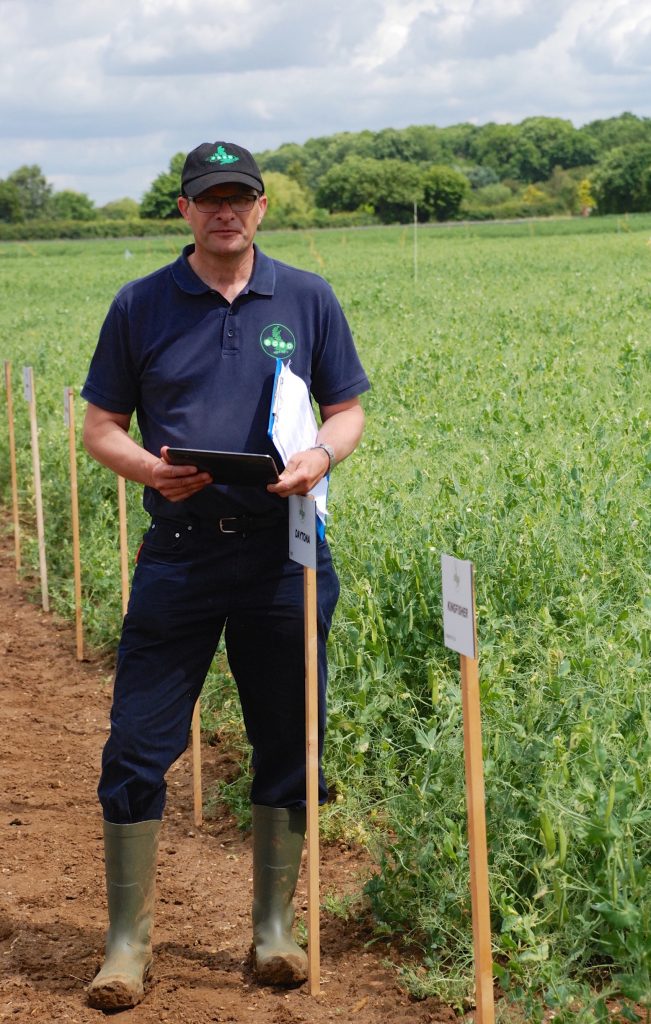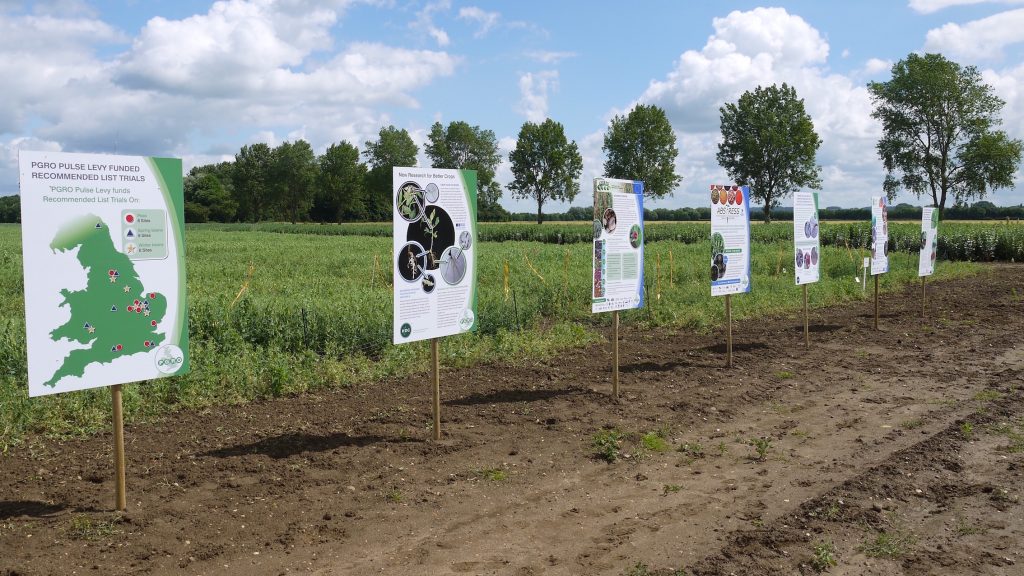PGRO pulse field day shows visitors the latest research
26th July 2016
Pulse growers, advisers and members of the trade attended the PGRO Pulse Field Day at Stubton, near Newark, at the end of June to see the latest pulse research and Recommended
Pulse growers, advisers and members of the trade attended the PGRO Pulse Field Day at Stubton, near Newark, at the end of June to see the latest pulse research and Recommended List trials at first hand.
“One of the key objectives of the PGRO is to share its research and agronomy work, so we were pleased to welcome growers, advisers and members of the trade to this event, which follows on from our Vining Pea Day earlier in June,” commented Roger Vickers, Chief Executive of PGRO.

Roger Vickers
“The Pulse Field Day was held at the Beeswax Farming Stubton Estate which is host to a number of our plot and field trials. PGRO researchers were on hand during the day to walk and talk visitors through the work carried out at the site.”
For example, Stephen Belcher, PGRO Principal Technical Officer, explained to visitors that the Stubton site is one of 23 across the country where the PGRO pulse levy funded Recommended List and National List trials for peas, winter and spring beans are located.
“The plots demonstrated the current varieties on the list and also a number of new lines being evaluated for possible future inclusion.
“It is encouraging to see the continuing submission of improved varieties that bring benefits to growers. We have a spring bean candidate variety, Lynx, that looks to offer a similar yield to current leading varieties with better downy mildew resistance. While Campus large blue pea gives yields close to the leaders with a significant improvement in standing power – the age old harvest headache for pea growers.”

Stephen Belcher
The Stubton site also featured plots that focused on practical agronomy topics of importance to growers – including efficacy of pre-emergence herbicides – and aphicide, plant population, downy mildew and weevil trials work.
A series of display boards gave a visual summary of recent and current work programmes including lure-and-kill technology to manage beetle pests, the ‘Beans4feeds‘ project, the development of a lab-based assay to detect common foot rot and ‘ABSTRESS’ – improving the resistance of legumes to abiotic and biotic stress.
“The results from all the research and agronomy work here and at our other trials sites forms the basis of the advice we give to growers in our publications, on the PGRO web site and in person at our Roadshows and meetings,” added Mr Vickers.

